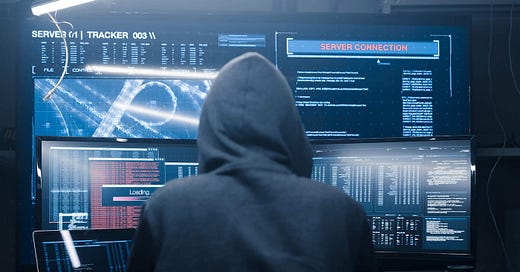The Dark Web's Dual Role in Society
In the boundless expanse of the digital universe, there resides a realm known as the Dark Web, which frequently elicits intrigue, fear, and misunderstanding. Hidden from conventional search engines and only accessible via specialized software like The Onion Router (Tor), the Dark Web is often associated with illegal activities. However, there's a seldom-explored dual nature to this realm: it also serves as a bastion for privacy and free speech, especially in oppressive regimes.
The Dark Web, a part of the broader Deep Web, relies on Tor for its existence. Tor’s architecture not only enables the Dark Web to flourish but also provides crucial services to many legal users globally, helping them evade surveillance, censorship, and online tracking (Chertoff & Simon, 2015).
In oppressive regimes, the Dark Web can become a tool of liberation. For example, during the Arab Spring, it offered dissidents a platform to communicate, organize, and share information while avoiding government surveillance (Freedom House, 2012). This facet, however, also acts as a double-edged sword, offering a refuge for criminal enterprises.
The Dark Web's illicit marketplace is vast and diverse, trafficking in drugs, weapons, stolen data, and even humans (Moore & Rid, 2016). Cryptocurrencies such as Bitcoin facilitate these illegal activities by providing an added layer of anonymity (Christin, 2013). The notorious Silk Road, a drug-trafficking black market, operated on the Dark Web until it was shut down in 2013.
There are various reasons why someone might choose to remain anonymous or establish sites untraceable to a specific location or individual. Some may wish to protect their data from government monitoring or to share large volumes of sensitive information with journalists without leaving a paper trail. Dissidents in oppressive regimes might require anonymity to keep the world informed about their situation (2019 JETIR).
Conversely, individuals with malicious intent, such as those plotting high-profile assassinations or selling illegal items like forged passports and stolen credit cards, may seek an untraceable network. Similarly, those who leak sensitive personal information, such as emails and contact numbers, will often rely on the anonymity provided by the Dark Web.
Services like TOR allow people to access confidential information in chat rooms or forums for personal or business reasons. TOR can be used to protect children online from violence by concealing their devices' IP addresses. Companies can also use this tool to safeguard their operations from corporate espionage (Jonason et al., 2014). Journalists, whistleblowers, and dissidents can use TOR to communicate anonymously and share sensitive information.
Despite the darkness, there are beacons of hope. Law enforcement agencies worldwide have started to penetrate the Dark Web, leading to the shutdown of numerous illegal platforms. However, the global and anonymous nature of the Dark Web presents a significant challenge to these efforts (Europol, 2020).
The Dark Web remains a paradox: a platform for both liberation and criminality. It symbolizes both the potential and the peril of the internet. As the digital age evolves, so too must our understanding and regulation of this obscure corner of the internet. This requires a nuanced approach, acknowledging its role as a tool for freedom and its potential for misuse. Only with such an understanding can we begin to address the complex challenges it presents.




